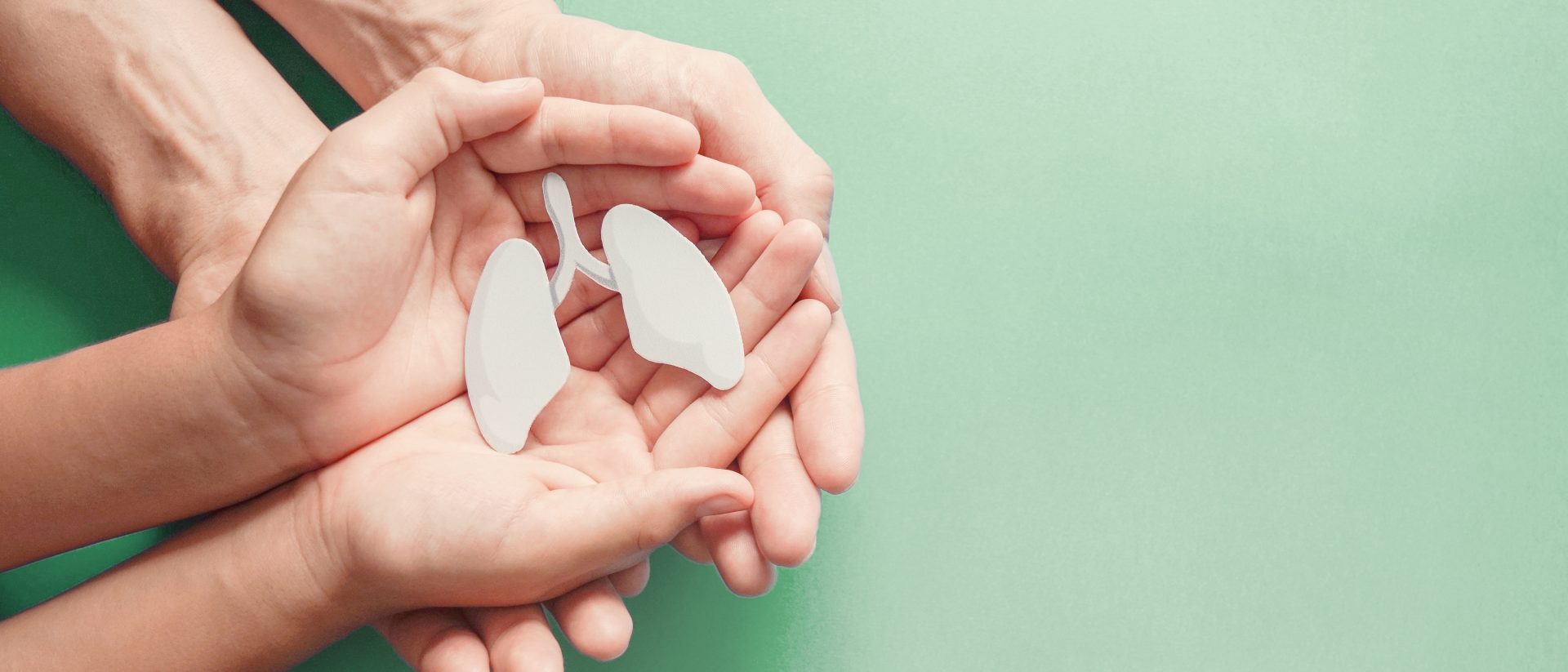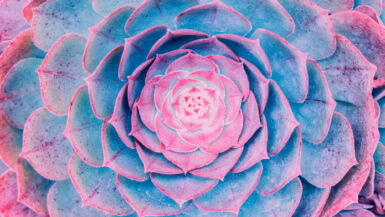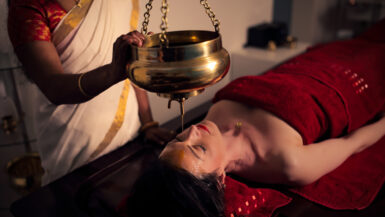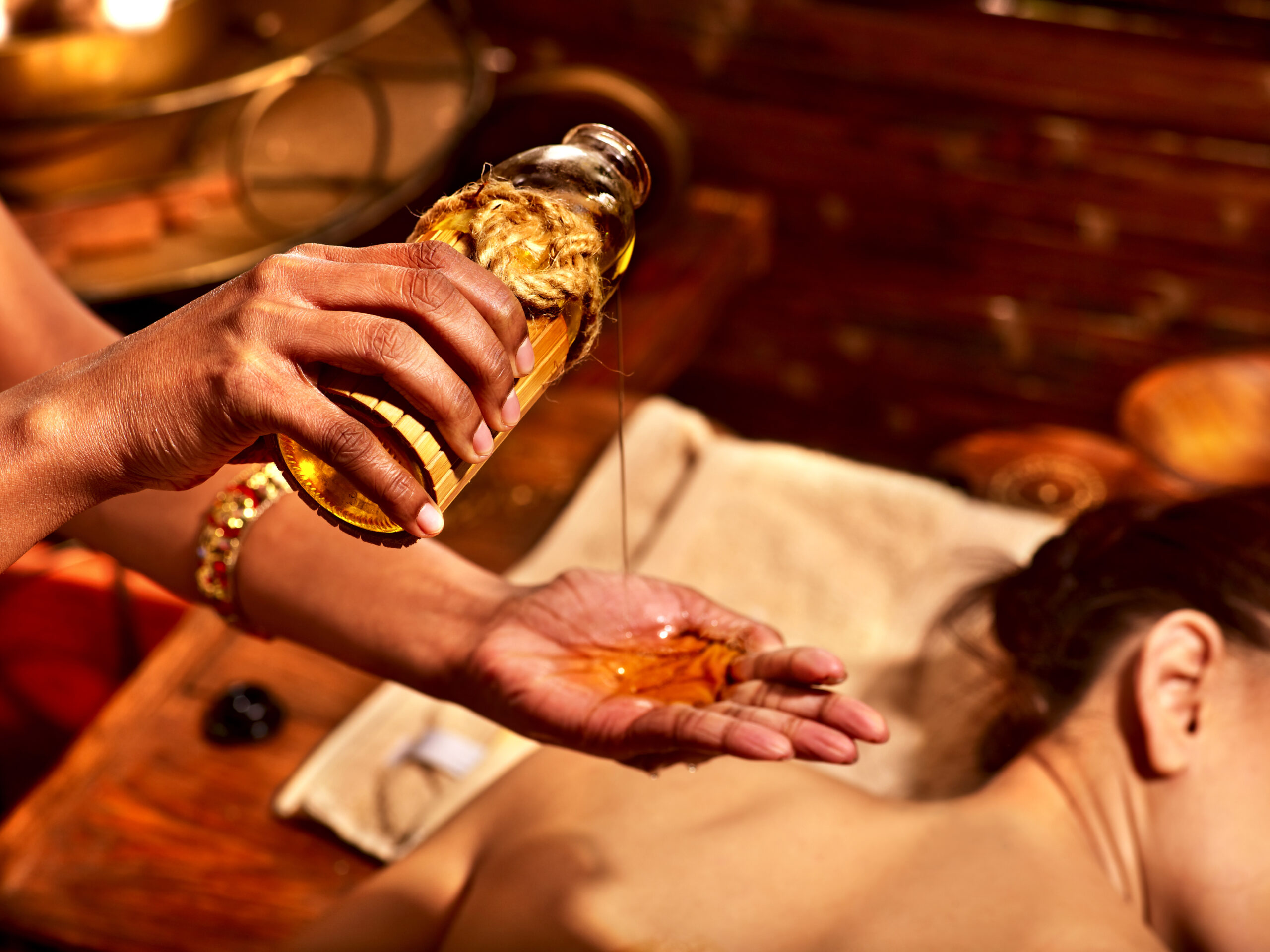While acute bronchitis is very common in the winter months, chronic bronchitis is not quite as widespread. Nevertheless, the World Health Organization has deemed COPD illnesses, including chronic bronchitis, as the third global leading cause of death in 2019. Smokers are at particularly high risk of contracting the disease, which is why it’s often referred to as “smoker’s cough”.
In acute bronchitis, an inflammation of the mucous membranes in the lungs is, in most cases, caused by a viral infection, which then leads to typical symptoms such as cough, fever and headache as well as pain in the limbs. Chronic bronchitis, on the other hand, is caused by continuous irritation of the bronchial mucous membranes by nicotine or other irritants. The self-cleaning power of the lungs is then tremendously weakened, and mucus can only be inadequately removed from the lungs. In this blog you will learn more about how Ayurveda can help against bronchitis and help you decide if an Ayurveda retreat can help you.
Bronchitis from an Ayurvedic perspective
Ayurveda refers to bronchitis as kasa roga. Kasa combines coughing and an irritable condition of the mucous membranes. From an Ayurvedic perspective, the breeding ground for a lung disease such as bronchitis clearly lies in an imbalance of the vata and kapha doshas. Phlegm formation and a weakened digestive fire also contribute to the development of lung disease. Too much kapha, as well as an excess of phlegm, promote blockages in the lung passages, causing shortness of breath.
Consequently, vata, which is associated with the element of air, can no longer circulate normally in the lungs. By moving in the wrong directions, it triggers coughing irritation or even spasms. The weakened digestive fire also leads to an accumulation of dampness, further increasing the formation of phlegm. Foods that promote moisture and kapha, such as dairy products, meats and sugary desserts and fruits, encourage the formation of mucus, which in turn is a haven for all kinds of pathogens. While Kapha bronchitis is the most common, bronchitis forms can also occur with typical Vata symptoms, such as a dry cough, or even pitta symptoms, such as fever and burning in the lungs.
How Ayurvedic bronchitis treatments strengthen your lungs
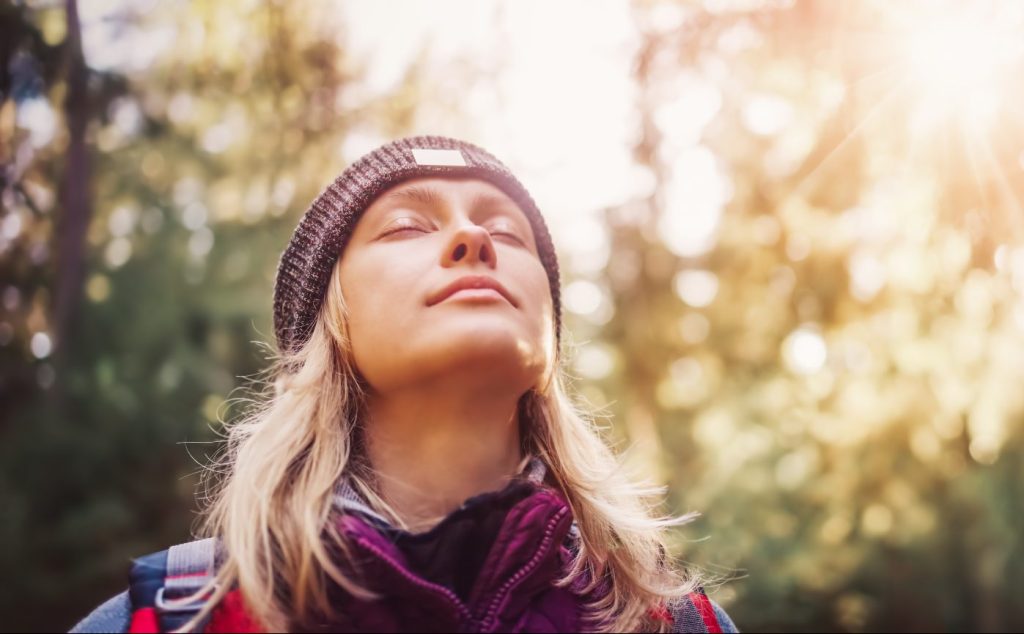
When treating bronchitis with Ayurvedic therapy measures, it’s important to free yourself of all triggers, for example smoking. If Ayurveda is used for bronchitis, a basic change in diet and the adjustment of your unhealthy lifestyle will take place from the start. Foods such as garlic, black pepper, rice, lentils, ginger, long pepper, and hot water with honey can exert their healing effects on bronchitis. Depending on which dosha is involved in the development of the lung disease, different foods can be helpful. Changing your lifestyle should include avoiding daytime naps, excessive physical exertion, exposure to smoke and dust, as well as dairy products.
Your sleep hygiene as well as optimizing your indoor air also play a crucial role in your recovery. Sufficient exercise in nature can significantly improve your chronic bronchitis. Ayurveda retreats use oil treatments to relieve COPD. Full-body massages with oil, oil bowel enemas, or ingestion of ghee, more commonly known as clarified butter, cleanse your body during a traditional Panchakarma detox. Ayurvedic herbal preparations or herbal stamps have an equally positive effect on the course of your lung disease. In addition to the holy basil, tulsi, you can also use ginger and pepper for bronchitis.
10 Ayurvedic tips for healthy lungs
1. Change your diet.
Changing your diet is very important in an Ayurveda bronchitis treatment. Depending on which dosha is responsible for your bronchitis, you have the option of incorporating different foods into your diet. Essentially, a light diet with lots of fresh vegetables is healing for your body.
2. Use Ayurvedic herbs.
Ayurvedic herbs can be taken as teas or incorporated into food. Ginger and black pepper are especially useful in the Ayurvedic treatment of acute bronchitis. Add a teaspoon of ginger powder and ground black pepper to a cup of hot water and drink the mixture twice a day.
3. Practice mindful breathing.

Many people breathe too shallowly in everyday life. Observe your breathing daily by placing one hand on your abdomen and the other hand on your chest. Incorporate mindful breathing exercises into your daily routine. Just 15 minutes a day, 5 minutes in the morning, 5 minutes at noon and 5 minutes before bed, can significantly improve your lung condition.
4. Practice alternating activity and rest through relaxation techniques.
When you have bronchitis, it’s important to give your body enough rest. You can learn to alternate between activity and rest through relaxation techniques such as meditation or yoga. This also encourages the practice of breathing because both in meditation and yoga you are taught mindful breathing techniques.
5. Make an Ayurvedic head steam bath at home.
A typical Ayurvedic treatment for bronchitis is a traditional head steam bath because it has anti-inflammatory, expectorant and calming effects. Put a tablespoon of cumin in a large bowl of steaming water. Lean over the bowl, cover your head and bowl with a towel for 10 minutes while you inhale the steam through your nose.
6. Use essential oils.
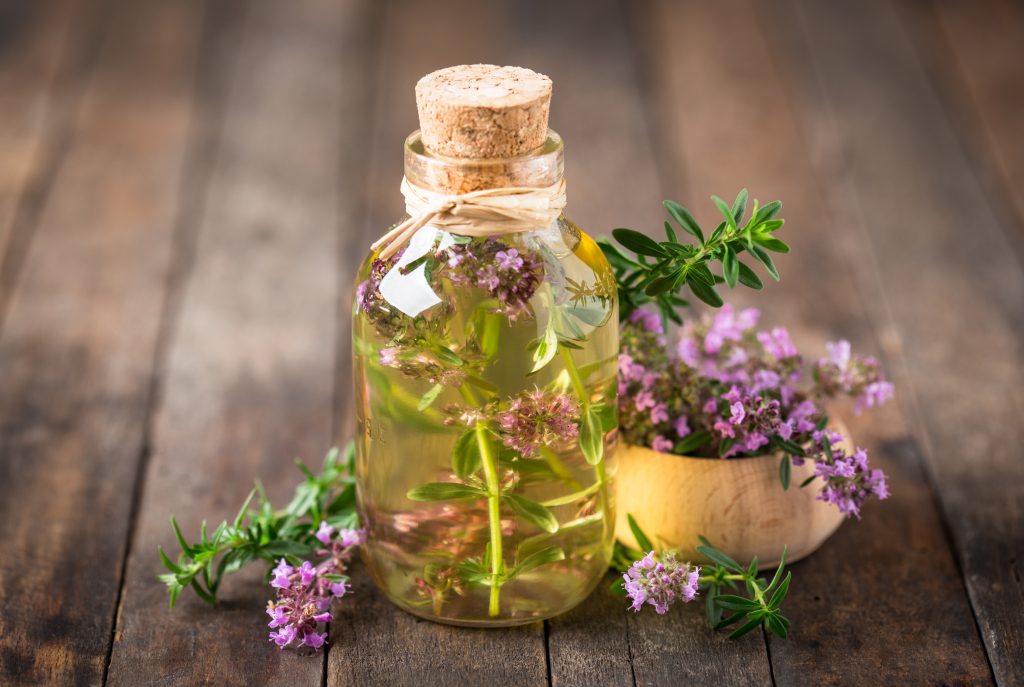
Inhaling essential oils can be very healing for your lungs, either through an essential oil diffuser placed in a room or by using them in conjunction with inhalations. Thyme oil is soothing for acute bronchitis symptoms.
7. Gargle with salt water.
Add a teaspoon of salt to a glass of warm water and gargle with it several times a day. Make sure you use high-quality salt and spit the water out completely after gargling. The salt water will help reduce your mucus production.
8. Take an Epsom salt bath.
When you’re suffering from acute bronchitis, taking a bath in Epsom salt can help relieve your symptoms. Add a few teaspoons of Epsom salt to your warm bath water and take a 30-minute bath in it.
9. Drink warm water regularly.
To keep your respiratory tract well moistened and facilitate regular removal of mucus from your lungs, Ayurveda recommends drinking warm water several times a day throughout the day for bronchitis. You can boil it in the morning and then put it in a thermos to keep it handy throughout the day.
10. Book an Ayurveda retreat against bronchitis.
Traditional Ayurveda retreats for bronchitis not only cleanse your body, but also help it restore its natural balance. Fragrant herbal steam baths or inhalations cleanse your respiratory tract and strengthen your immune system. Draining procedures remove metabolic waste products and toxins from your body. The best feature of an Ayurvedic retreat, is that the entire therapy plan and diet is tailored according to your individual needs and with the watchful guidance of an experienced Ayurvedic doctor and therapists. It is a holistic and natural therapy for body, mind and soul.

